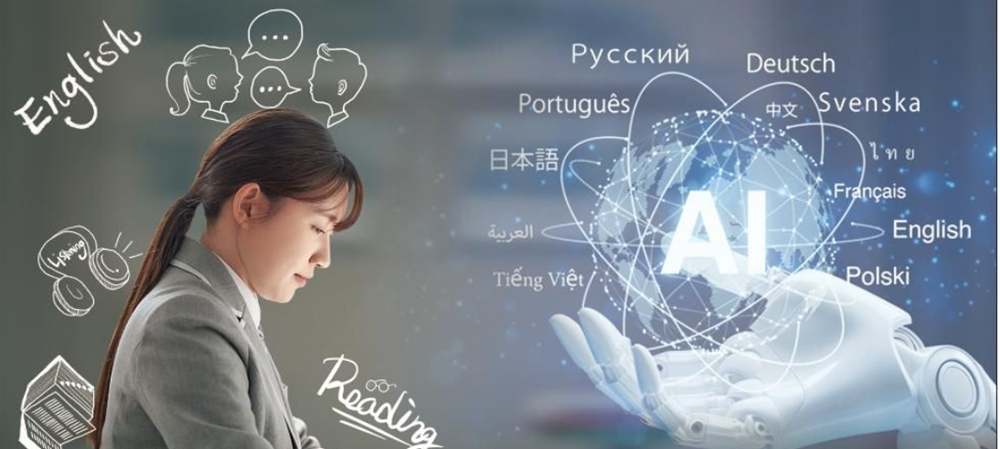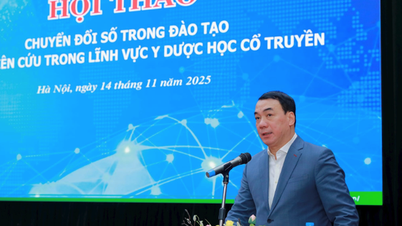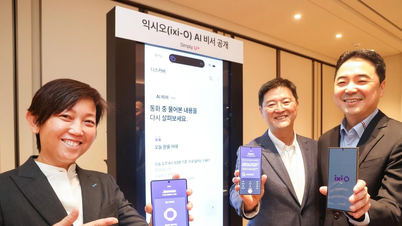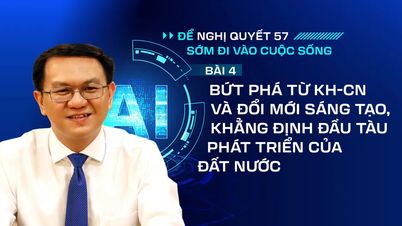
According to the Korea Times , the rapid development of artificial intelligence (AI) is raising debates about the role of English in global communication. As AI translation tools become faster and more accurate, some argue that learning English is becoming less important.
However, experts warn that this view is simplistic, especially for those who want to fully grasp the opportunities of the digital revolution. While AI is changing the face of media, the long-term value of English proficiency remains as important as ever.
At the root of this advantage lies the data that powers the AI systems themselves. It is estimated that around 90% of the training data used for generative AI models today is English content.
This means that, while AI systems are designed to handle many languages, they still work best and respond most naturally in English.
Many of the latest technical tools and research are published in English, and advanced AI features are often optimized for communication in this language.
“More importantly, AI systems are accustomed to thinking in English structures. In other words, AI tends to process and generate language according to common English grammar, sentence structure and logic, giving a clear advantage to people with good English skills,” said Kim Kyeong-seo, CEO of VAIV Company (Korea).
AI’s bias toward English isn’t just a technical limitation, it’s a deep linguistic limitation that affects how it handles other languages. Studies show that AI models often favor English, leading to unnatural output in other languages.
In effect, these models “think” in English before translating into the target language, affecting the quality and nuance of the response.
“AI has cleared the basic language barriers, but we still don’t feel that conversing with AI is as natural as talking to a human,” said Kim Kyung-joong, a scholar at the Gwangju Institute of Science and Technology. “That’s why I still encourage my students to learn English,” he added.
Educators argue that this linguistic asymmetry does not reduce the need for English but fundamentally changes the way it is used.
Prof. Moon Hyung-nam, president of the Korean Association for AI Education, said: “Proficiency in English allows users to guide AI more accurately, evaluate the work AI does, and correct errors when necessary. With the many possibilities opened up by AI, the ability to read and understand English becomes more important.”
Professor Moon emphasized that the AI era divides users into two groups: those who rely solely on AI and those who actively exploit the technology: “Those who know how to fine-tune AI translation to be more natural can achieve much higher quality results than those who just use raw AI output.”
According to Professor Moon, English is no longer just a communication tool but has become an essential language for effective cooperation with AI.
“Thanks to AI, the days when not knowing English meant a competitive disadvantage are over. But only those who understand English well can fully exploit the power of AI. For this reason, the goal of learning English will shift from communication to developing global thinking skills through A,” he said.
Source: https://baovanhoa.vn/nhip-song-so/trinh-do-tieng-anh-con-quan-trong-trong-ky-nguyen-ai-khong-181656.html


![[Photo] The Government Standing Committee reviews the planning project of the Red River landscape avenue axis](https://vphoto.vietnam.vn/thumb/1200x675/vietnam/resource/IMAGE/2025/11/15/1763197032149_dsc-0163-jpg.webp)
![[Photo] General Secretary To Lam receives Governor of Kanagawa Province (Japan) Kuroiwa Yuji](https://vphoto.vietnam.vn/thumb/1200x675/vietnam/resource/IMAGE/2025/11/15/1763204231089_a1-bnd-7718-5559-jpg.webp)
![[Photo] Action for the Community tells stories of enduring journeys – both intimate and great, yet quiet and determined](https://vphoto.vietnam.vn/thumb/1200x675/vietnam/resource/IMAGE/2025/11/15/1763179022035_ai-dai-dieu-5828-jpg.webp)

![[Photo] Exciting contest of skillful red fruit picking and creativity from Son La coffee beans](https://vphoto.vietnam.vn/thumb/1200x675/vietnam/resource/IMAGE/2025/11/15/1763201832979_ndo_bl_3-jpg.webp)




































































































Comment (0)